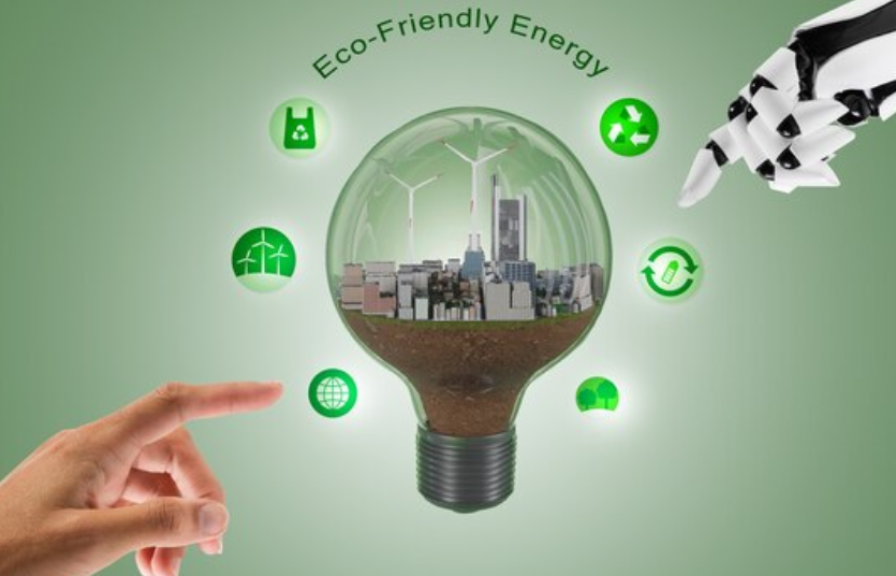
It’s indisputable that the effects of climate change are increasingly felt. Consequently, industries across the globe are stepping up to the challenge, pioneering innovative eco-solutions and leading a green transformation. This video is just one of many that addresses the role of industry in sustainability.
Here, we’ll explore how various sectors are redefining their operations and adopting sustainable practices to create a healthier planet.
Renewable Energy Revolution
The energy sector, historically a significant contributor to carbon emissions, is undergoing a radical change. Leading energy companies are shifting from fossil fuels to renewable sources like solar, wind, and hydroelectric power. Innovations in solar panel efficiency and wind turbine technology are making these options more viable and cost-effective than ever before. Additionally, advancements in battery storage technology are solving the intermittency issues of renewable energy, paving the way for a cleaner, greener grid.
Expanding Reach and Accessibility: Efforts are also being made to expand the reach of renewable energy to remote and underdeveloped regions, bringing sustainable power solutions to communities that previously relied on polluting energy sources. This expansion not only helps reduce global carbon emissions but also supports socio-economic development in less affluent areas, proving that environmental solutions can have far-reaching positive impacts.
Sustainable Manufacturing Practices
Manufacturing industries are rethinking their production processes to minimize environmental impact. This shift includes the adoption of circular economy principles, where waste and resource use are minimized through recycling and reusing materials. Companies are also investing in green technologies such as carbon capture and storage (CCS) and switching to less polluting energy sources. Furthermore, there is an increasing trend towards using sustainable materials, reducing water usage, and implementing energy-efficient practices.
Innovative Product Design: Beyond production processes, industries are focusing on designing products that are not only environmentally friendly but also encourage sustainable use among consumers. This involves creating products that are durable, easy to repair, and recyclable, thereby reducing the environmental impact throughout the product’s lifecycle and promoting a culture of sustainability among consumers.
Eco-Friendly Transportation
The transportation sector, a significant contributor to global greenhouse gas emissions, is witnessing a surge in eco-friendly innovations. Electric vehicles (EVs) are becoming more mainstream, supported by advancements in battery technology and an expanding network of charging stations. Public transportation systems are also being revolutionized with the introduction of electric and hydrogen fuel cell buses, reducing carbon footprints in urban areas. Additionally, the aviation and shipping industries are exploring biofuels and other green technologies to reduce their environmental impact.
Sustainable Urban Planning: To complement these technological advancements, there is a growing focus on sustainable urban planning. Cities are redesigning urban spaces to promote walking, cycling, and the use of public transport. By creating more pedestrian-friendly areas and bike lanes, and by optimizing public transport routes, cities are reducing the reliance on personal vehicles, thereby contributing to a decrease in urban pollution and traffic congestion.
Green Building Techniques
The construction industry is embracing green building techniques to reduce its environmental footprint. This involves using sustainable materials, improving energy efficiency, and integrating renewable energy sources in new buildings. Green buildings are designed to have a minimal impact on the environment and often include features like green roofs, rainwater harvesting systems, and energy-efficient lighting and heating systems.
Holistic Environmental Impact Assessment: In addition to these techniques, there is an increasing emphasis on holistic environmental impact assessments in construction projects. These assessments consider not just the building process, but also the long-term impact of the building on the environment, including factors like biodiversity, resource depletion, and the health and well-being of occupants. This comprehensive approach ensures that buildings contribute positively to their surroundings throughout their lifecycle.
Technology and AI for Sustainability
Technology is playing a crucial role in enabling industries to become more sustainable. Artificial Intelligence (AI) and the Internet of Things (IoT) are being leveraged to optimize energy use, reduce waste, and monitor environmental impact in real-time. AI algorithms help in predicting and managing energy consumption in industrial processes, while IoT devices facilitate the monitoring of emissions and resource use.
Enhanced Data Analytics for Environmental Management: Beyond operational optimization, advanced data analytics are being used to enhance environmental management across industries. This includes analyzing large datasets to identify patterns and trends in environmental impact, helping businesses make more informed decisions about resource allocation, supply chain management, and environmental risk assessment. By harnessing the power of big data, industries are not only improving their efficiency but are also becoming more proactive in their environmental stewardship.
Agriculture Goes Green
The agricultural sector is also contributing to the green transformation. Sustainable farming practices like precision agriculture, organic farming, and permaculture are gaining traction. Innovations like vertical farming and aquaponics are promoting more efficient land use and reducing the need for chemical fertilizers and pesticides, leading to a more sustainable food system.
Promoting Biodiversity and Ecosystem Services: Alongside these practices, there is a growing emphasis on promoting biodiversity and ecosystem services in agriculture. This involves practices like agroforestry, where crops are grown alongside trees and other vegetation, enhancing biodiversity, improving soil health, and sequestering carbon. By integrating ecological principles into farming, the agricultural sector is not only reducing its environmental impact but also building resilience against climate change.
Conclusion
The journey towards a sustainable future is a collective effort, and industries across the board are playing a critical role in this transformation. These innovative eco-solutions not only contribute to the fight against climate change but also demonstrate that economic growth and environmental sustainability can go hand in hand. As these green initiatives continue to evolve and expand, they pave the way for a healthier, more sustainable world for future generations.







